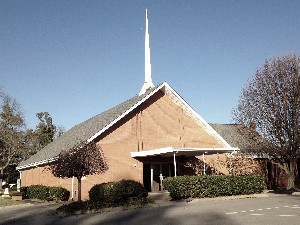by Michael S. Cole, M.D.
DEACONS
The word deacon comes from a Greek word meaning “servant.” We find the first deacons being chosen because of a specific need in Acts 6. The needs and circumstances of a given situation in the New Testament church determined when deacons were appointed and how many were required. The deacons had authority only as they were assigned to be over some specific business.
The Bible has clearly instructed early Christians (and us) about the qualifications for men who serve in the office of deacon (Acts 6:3, I Tim. 3:8-13):
1. Good reputation
2. Full of the Holy Spirit
3. Full of wisdom
4. Reverent (serious)
5. Not double-tongued
6. Not addicted to wine
7. Not greedy for money
8. Hold faith with pure conscience
9. Found blameless
10. One wife (who is reverent, temperate, faithful, and not a slanderer)
11. Manages his own family well
The Bible makes no indication that deacons were permitted to rule in the early church. They were to serve under the oversight of elders (or bishops).
The local congregation in the first century had “bishops and deacons” (Phil. 1:1).
ELDERS
By God’s design “elders” are to rule in the local church (I Tim. 5:17). The office they hold is also referred to as “bishops” (I Tim. 3:1), “overseers” (Acts 20:28), and “shepherds” or “pastors” (I Pet. 5:2, 4; Eph. 4:11).
Each church should be governed and supervised by a plurality of such men, not by one “Bishop” or one “Pastor.” There were “elders” over the church in Ephesus (Acts 20:17), and “bishops” over the church in Philippi (Phil. 1:1). Paul instructed Titus to “appoint elders in every city” (Titus 1:5, Acts 14:23).
As a ruler in the church, an elder is only authorized to maintain those rules already set down in the New Testament (Acts 20:30, Gal. 1:9). He is not to be domineering, but is to lead by his example (I Pet. 5:3).
All Christians have been commanded to submit to the leadership and authority of the elders of their congregation (I Pet. 5:5, Heb. 13:7, 17).
The qualifications of men who may serve as elders can be found in I Tim. 3:1-7:
1. Desires the office
2. Blameless
3. One wife
4. Temperate
5. Sober-minded (sensible)
6. Good behavior (dignified)
7. Hospitable
8. Able to teach
9. Not given to wine
10. Gentle (not violent)
11. Not greedy
12. Not quarrelsome
13. Rules his own house well
14. Submissive and respectful children
15. Not a recent convert
16. Well thought of by outsiders
… and in Titus 1:6-9:
17. Believing children who are not unruly
18. Steward of God
19. Not self-willed (or arrogant)
20. Not quick-tempered
21. Lover of goodness
22. Just (upright)
23. Holy
24. Self-controlled
25. Firm hold on God’s word
Elders were instructed to watch over the flock (church) as shepherds (Acts 20:28-32). They are caretakers of souls who are to perform their duties willingly and eagerly (I Pet. 5:2). Without partiality they are to teach, instruct, and direct all of the members in the way of sound doctrine (Titus 1:9).
CHRIST
No man is head of the church on earth, but Jesus Christ, the Son of the living God (Eph. 4:15-16). Christ is the only head of the church, His one body (Col. 1:18). Therefore, every member of the body must be in subjection to Him (I Cor. 12:12-13, Eph. 5:22-32).
This means that in matters of religion we do not have to submit to any man-made authority, but only to the divine authority of Christ as revealed in the New Testament.
GOD
Though Christ has equality with God (Phil. 2:6), their roles are different. “The head of Christ is God” (I Cor. 11:3).
Jesus said, “Call no man your father on earth, for you have one Father, who is in heaven” (Matt. 23:9).
Cast all your anxieties on God, for He cares about you (I Pet. 5:7).
GOD
– CHRIST
– ELDERS
– MEMBERS
(including teachers, preachers, and deacons)
is the proper order of authority in the church.
We cannot expect to be rewarded by God unless we live “according to the rules” (II Tim. 2:5) we find in God’s Word. We can conclude that God will not be pleased unless we play by His rules.


